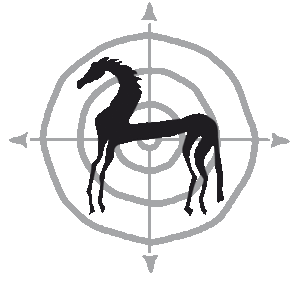Is your horse afraid of fireworks? Here are 5 ways you can help.
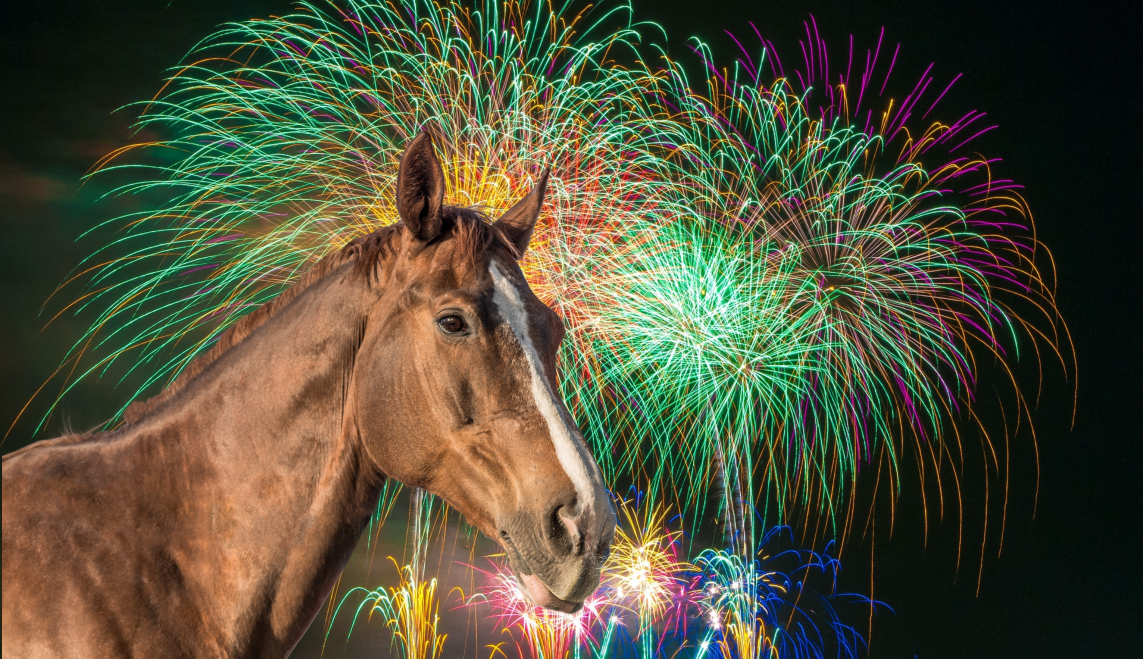
Is your horse afraid of fireworks? New Year’s Eve is almost here – which means, fireworks.
Horses and fireworks are not a good combination. I still remember the time when I was asked to come and help with a very large horse that was kicking very large holes in the walls of his stable because he was so stressed out by the fireworks going off in the neighborhood.
We managed to calm him down, but it was not good for either his legs, the walls of the stable or my nerves.
So, here are 5 ways you can help your horse stay calm. (Many of them work for dogs, too, by the way.)
Is your horse afraid of fireworks? Be prepared!
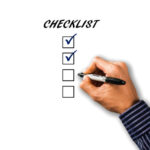
Fireworks? Be prepared!
First of all: be prepared. Most places now have restrictions on when people are allowed to shoot off fireworks. But, unfortunately, not everybody keeps to those restrictions… So start your preparations early enough.
Also, it’s important that there is somebody with the horses during the firework hours. Preferably even more than 1 person, in case something happens.
If you have your horse in a boarding stable, start an early discussion about who will give up their New Year’s Eve party to be in the stable. And if you are not in the stable, make sure you can be contacted.
Tip 1: Movement releases stress
Horses are moving animals by nature. Their whole body is adapted to moving around many hours a day.
On top of that, horses are prey animals (meaning that they get chased by predators in the wild). So, for a horse, moving is one of the most important ways to release stress. And not allowing them to move will usually increase their stress.
This you can use in several ways. The first one is to give your horse a lot of exercise in the days before the fireworks start. Not always easy, since it coincides with the Christmas holiday – and often with bad winter weather, here in Norway. But it’s really worth the effort. If riding is not possible, try to take your horse on some good, long walks.
Note: If you do go for a walk, be sure you can control your horse in case somebody shoots off some early fireworks. Use a bridle to lead him, not just a stable halter. And use a long lead rope.
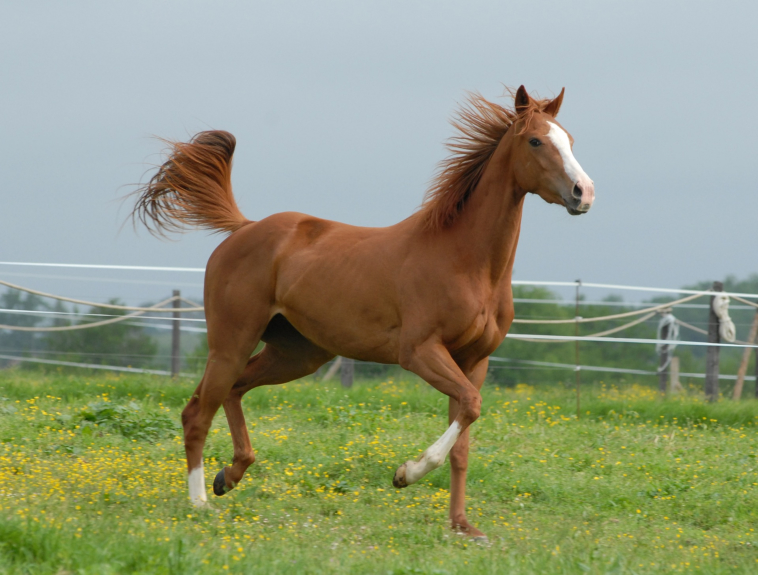
Allowing a horse to move can often get his stress levels down.
Use a safe outside space
Many horses can get even more stressed by being cooped up in a box while there are fireworks going off. If there is a safe outside space you can put your horse, that might the best option.
Safe means:
- With good footing, not slippery
- No dangerous objects (like a water container with sharp edges)
- Not too big – the horse should not be able to run at a high speed
- Not too small – you don’t want your horse to do pirouettes for hours and damage his legs.
- With good, solid and high enough fencing. (If using electrical fencing, make sure it is working.)
We often use some smaller paddocks outside. But you could also use part of an outdoor or indoor arena, if possible.
Tip 2: Give your horse company
Misery shared is misery halved. Horses are very social animals. A calm horse that can act as a ‘kind uncle’ for the more excitable horses can make a huge difference. For young horses, a quiet older horse will teach them there is nothing to be worried about.
However, if these horses are not used to standing together, then ongoing fireworks is not the best time to introduce them! But maybe it’s at least possible to have them standing next to each other? In the stable, or in smaller paddocks outside?
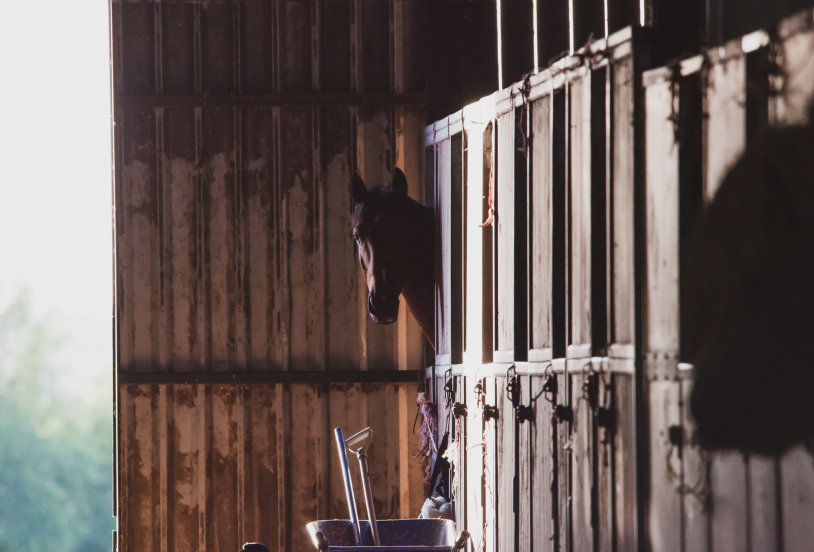
Horses are not made to be alone! A companion can be the best way to improve your horse’s wellbeing.
Tip 3: Comfort food can help if a horse is afraid of fireworks
When and what you feed your horse can also be helpful in regulating stress.
If your horse gets a lot of concentrates, the first thing is to reduce that substantially. Preferably already some days before. The last thing your horse needs is more energy!
Of course, he can still get his vitamins etcetera. But any oats, pellets etcetera should be reduced to a minimum.
Monday Morning Sickness
There is another big benefit in this.
Sport horses that get a lot of ‘hard food’ have some specific risks if you suddenly have to cut back their exercise. ‘Monday Morning Sickness’ is an illness that typically used to affect working horses that had Sunday off, but didn’t have their ration of concentrates decreased. So just in case anything would happen, this makes it an even better idea to cut down before the fireworks start.
Increase the hay
Here at Raaken Farm we only feed part of the horses’ normal hay portions on New Years’ Eve. And then, just before the fireworks start, we give a very large portion. So the horses have big heaps of hay to distract from the scary sounds of fireworks.
Lots of hay also helps to prevent ulcers in horses. So that is not a bad policy anyway. As long as they have enough water, unlimited hay can help your horse through stressful times. Worrying about their waistline can wait till another week!
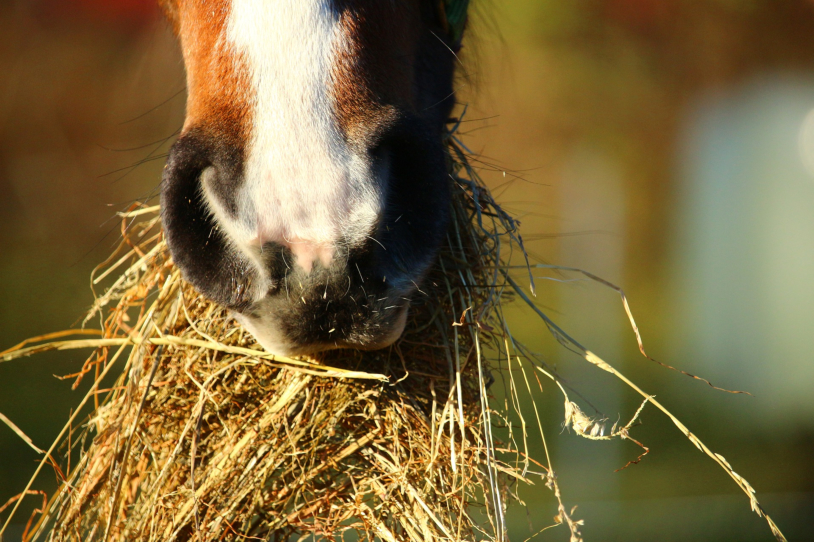
Lots of hay will keep your horse occupied, relieve stress and help prevent ulcers.
Tip 4: Calming supplements
There are many different supplements on the market that are supposed to have a calming effect on horses. You can check with your veterinarian, on the Internet, or ask at your local tack store.
Often these supplements contain Magnesium and/or a combination of herbs.
Some should be given over several days. Others just a few hours before. Check the directions for the best result.
Note: be aware that some of these supplements could show up on a doping test. Double check if you plan to start in a competition!
Homeopathic remedies
We often use homeopathic remedies to support any kind of treatment our horses might require.
Nurexan (produced by the German company Heel) is a calming supplement for horses, cats and dogs. We have seen good results when using it for horses that get easily stressed.
Another useful supplement is Rescue Remedy (a Bach Flower Remedy). These come as drops or as a spray. The great thing is that the drops also work if you rub them in the skin, for example on the shoulder.


Tip 5: Distract your horse
If your horse is to stay inside while the fireworks are going off, you can try playing some music as a distraction. Horses have very sensitive hearing – so the idea here is not to try to play music at a noise level higher than the fireworks! Screeching heavy metal rock might also have the opposite effect.
Try to find some ‘easy listening’ music, or some happy pop tunes. And do a little trial run in the days beforehand to see how your horse reacts.
Some horses do well with ear hats, maybe even with some cotton wool in the ears to dampen all sounds. Again: if your horse is not used to this, try it in the days beforehand. Just so the earhat itself is not the thing stressing him more than the fireworks.
Bonus tip: Check the blankets
Stressed horses can easily start sweating, even when it’s cold. So keep an eye on your horse’s temperature.
Make sure your horse isn’t too thickly wrapped up, and check after the fireworks are done if he has been sweating and maybe needs a blanket change.
Another solution can be to put on a breathable blanket (like a fleece blanket) under his regular blanket, or even instead of.
Whatever you choose: make sure the straps are adjusted correctly. So the blanket doesn’t slide off and/or the horse gets his legs stuck in the blanket if he would get agitated.
Now the only thing left to do is to keep our fingers crossed for sensible neighbors and as little fireworks as possible!
What do YOU do to keep your horse calm on New Year’s Eve?
Share it in the comments – every tip that can avoid an accident is welcome.
Don’t miss our next blog post!
Don’t risk missing out – sign up here, and our next blog posts will automatically land in your inbox.
BONUS: you will get this FREE E-BOOK! With 10 easy tips how you can be a better rider, already today. Because our horses deserve that we are the best riders we can be.
Any questions or comments? Feel free to share with us in the comments.
We love feedback and will try to get back to you as quickly as possible.
